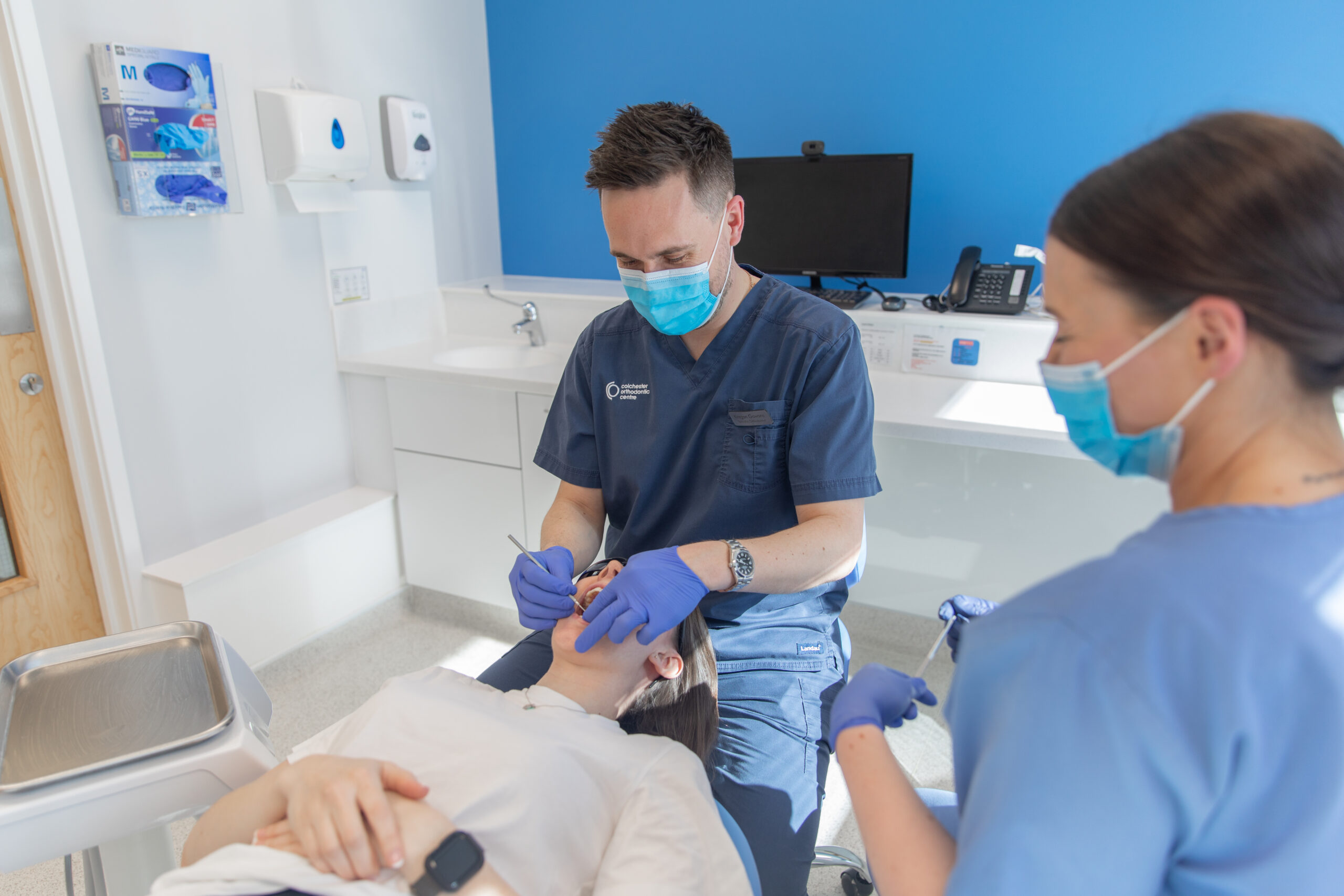It is important to look after your orthodontic appliance to ensure it works effectively and produces the desired results in the shortest possible time. This should include carefully brushing teeth after every meal, avoiding food that may damage your braces and visiting both your orthodontist and dentist throughout the treatment process.

It is perfectly normal to experience some issues with your brace during the first few weeks after fitting. You may experience some discomfort during this time due to brackets coming loose or wires snapping, disengaging or sticking out at the end of the bracket.
These problems may be a result of:

The following tips may help you deal with brace problems:
If breakages occur during the later stages of the straightening process, it may result in extended treatment times. If you experience severe discomfort that you cannot resolve yourself, please call us on 01206 756210 to book an appointment. Please note, we charge for out-of-hours breakage appointments.
Find out how we can help you
Don’t stop seeing your dentist and hygienist just because you are regularly visiting an orthodontist. It is still important to attend appointments so your teeth can be assessed and deep cleaned. You should have check-ups at least twice a year, or as often as your dentist and orthodontist recommend.
Get in touch
While you are wearing braces, you need to be wary of eating foods that could increase your risk of cavities. You should also avoid anything that might damage the brackets or wires, as frequent breakages will increase the treatment time.
Keep clear of hard and sticky foods, such as caramel, hard sweets and gum, as these can damage your braces and get stuck in the wires and brackets. In fact, it’s a good idea to cut down on all sugary foods. You can still have the occasional sweet treat or fizzy drink, but the more sugar you consume, the greater your risk of tooth decay. If you do indulge, always brush your teeth after eating sugary foods or sweets.
